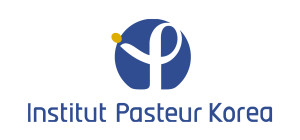Institut Pasteur Korea – Hakim Djaballah, CEO
Hakim Djaballah arrived to Institut Pasteur Korea in July 2014 with an aim to return to the French institute’s focus on infectious diseases. He outlines the complexities of Korea’s research…
 Institut Pasteur Korea is conceptualized around the virtual “genome to drugs” pipeline. The goal of IP-Korea is to actively implement post-genomic approaches into accelerated drug discovery. Accordingly, IP-Korea is situated at the very fault line between basic research and application.
Institut Pasteur Korea is conceptualized around the virtual “genome to drugs” pipeline. The goal of IP-Korea is to actively implement post-genomic approaches into accelerated drug discovery. Accordingly, IP-Korea is situated at the very fault line between basic research and application.
The positioning of our institute is in good accordance with the Pasteurian tradition and mission. During its long history Institut Pasteur in Paris has been able to combine scientific achievements with their application in public health. This has improved the lives of millions of patients over the last 130 years, and has earned Institut Pasteur 10 Nobel prizes.
To extend and build on these achievements, IP-Korea is the first to develop a technology-based approach to therapeutic development in the areas of infectious and chronic diseases.
Strategically it combines its strength in biomedical research with Korean expertise in Information and Chemical technologies.
The result is the consequent implementation of visualization and imaging technology in analyzing disease models, accelerating both drug discovery and basic research.
Contact details
Address: 16, Daewangpangyo-ro 712beon-gil, Bundang-gu, Seongnam-si, Gyeonggi-do, Republic of Korea
Tel: +82 31 8018 8000
Fax: +82 31 8018 8010
Email: ipkorea@ip-korea.org
www.ip-korea.org
Hakim Djaballah arrived to Institut Pasteur Korea in July 2014 with an aim to return to the French institute’s focus on infectious diseases. He outlines the complexities of Korea’s research…
Could you introduce Lee & Ko to our readers? Established in 1977, Lee & Ko is the largest and the leading law firm in Korea, consisting of 310 professionals, including…
South Korea has a short history of participating in global clinical trials, but now the country is seeing exponential growth in this area. What has changed in recent years leading…
What are the main milestones and achievements of Daewoong’s pharmaceutical business over its decades of evolution? Daewoong was first established in 1945 as Chosun Liver-oil Pharmaceutical Industry Co., Ltd. The…
Could you provide our international readers with a profile of Bioneer as it stands today? Bioneer, having a strong basis of technology and experiences in molecular biology since 1992, we…
Although Chungcheongbuk-do is a small province in terms of territory and population, it has gained increasing importance in Korea’s economy. What are the main drivers of this growing economic progression?…
How did you first get involved in clinical trials and what inspired you to create your own CRO, ADM Korea? When I was working at CJ, the company was starting…
You have recently taken over the position as head of AstraZeneca in South Korea, after several years working in China. What view did you have of the Korean pharmaceutical sector…
You are one of the foreign multinational directors with most time in the Korean pharmaceutical industry, since 2003. What is your assessment of the direction the market has taken in…
What is KHIDI’s role in supporting the development of the Korean health industry? KHIDI performs three major roles in supporting the Korean health industry, which includes pharmaceuticals, medical devices, cosmetics,…
Previous to your current position as President of Pfizer Korea since 2004, you had been in the country between 1989 and 1993 as sales and marketing director. How different are…
Please introduce Handok Pharmaceuticals to our readers, and in particular how it has evolved through partnerships with different multinational companies throughout its history. Handok has developed in a very unique…
Korea had a late start, but is now one of the global hot spots for clinical trials. How would you sum up and explain this quick evolution? Clinical trials in…

See our Cookie Privacy Policy Here